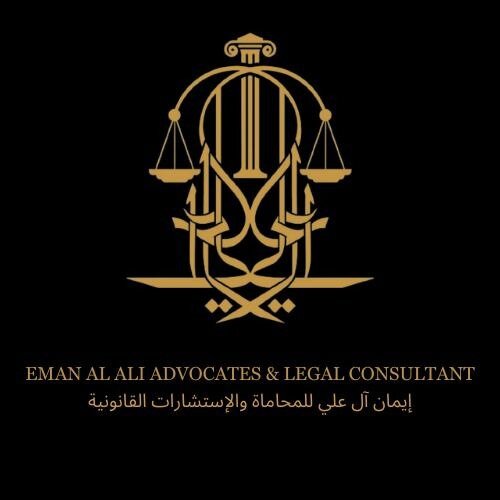Best Employer Lawyers in Dubai
Share your needs with us, get contacted by law firms.
Free. Takes 2 min.
List of the best lawyers in Dubai, United Arab Emirates
United Arab Emirates Employer Legal Articles
Browse our 2 legal articles about Employer in United Arab Emirates written by expert lawyers.
- Workplace Accident Procedures for Dubai Businesses
- Table of ContentsIntroduction: A Guide for EmployersImmediate Actions After an InjuryProvide Medical AssistanceSecure the SceneInternal NotificationOfficial Reporting Requirements in DubaiMinistry of Human Resources and Emiratisation (MoHRE)Dubai PoliceFree Zone SpecificsUnderstanding Your Legal Compensation LiabilityTemporary DisabilityPermanent DisabilityFatality, Diya, and Civil ClaimsCan a Manager Be Held Personally Liable?Assessing Your Insurance CoverageWorkmen’s Compensation InsuranceEmployer’s... Read more →
- Legal Requirements for Hiring Employees in the UAE
- Table of ContentsIntroductionNavigating the New UAE Labour LawCore Principles of the New Labour LawEquality and Anti-DiscriminationProtections Against Workplace HarassmentThe Modern Employment ContractMandatory Fixed-Term AgreementsNew Flexible Work ModelsEmployee Rights and EntitlementsWorking Hours and OvertimeLeave Policies (Annual, Sick, Maternity, and Others)End-of-Service Gratuity CalculationThe Hiring Process: A Step-by-Step GuidePhase 1: Recruitment and ContractingCompliant... Read more →
About Employer Law in Dubai, United Arab Emirates:
In Dubai, United Arab Emirates, employer law is governed by the UAE Labour Law Federal Law No. 8 of 1980, as well as subsequent amendments to it. These laws oversee virtually all aspects of employer-employee relationships, including terms of employment contracts, working hours, leaves, termination rights, and employee benefits among others. It’s important to note that the Dubai International Financial Centre (DIFC) and the Abu Dhabi Global Market (ADGM) have their separate employment laws.
Why You May Need a Lawyer:
Employers may need legal assistance with drafting employment contracts, compliance with labour laws, handling disputes with employees, and litigation. On the other hand, employees may require legal advice on their employment rights, wrongful termination, disputes over compensation and benefits, and cases of workplace harassment or discrimination. When faced with any legal disputes or challenges in the workplace, it is wise to consult with a lawyer specialized in employment law in Dubai.
Local Laws Overview:
The UAE labour law regulates several aspects of the employment relationship. For example, it stipulates that employers may terminate the contract of an employee only on legitimate grounds related to their conduct or the operational requirements of the business. It also prescribes the maximum working hours, leave entitlements, and rules concerning maternity and sick leave. The law prohibits any form of discrimination or harassment in the workplace and also sets forth rules on employee compensation, end of service benefits, and gratuity.
Frequently Asked Questions:
1. Can an employer terminate an employee without notice in Dubai?
No, unless the employee has committed a serious misconduct as listed under Article 120 of the UAE Labour Law. In general cases, either party must give a notice period before termination.
2. Is it necessary to provide employment contracts in Arabic?
Yes, while the contract can be bilingual, Arabic is the official language in the UAE and legal disputes will refer to the Arabic version of any document.
3. How are working hours regulated in Dubai?
Normal working hours for the private sector are 8 hours per day or 48 hours per week. During Ramadan, normal working hours are reduced by 2 hours per day.
4. Can female employees get maternity leave in Dubai?
Yes, a female worker is entitled to 45 days maternity leave with full pay if she has served for a continuous period of not less than one year. If not, she is entitled to maternity leave with half pay.
5. Are employers in Dubai obligated to provide end of service gratuity to employees?
Yes, employers are required to provide end of service gratuity to employees who have completed one or more years of continuous service.
Additional Resources:
Those seeking legal advice on employer law in Dubai may find it useful to consult the Ministry of Human Resources and Emiratisation (MOHRE) or the Dubai Chamber of Commerce and Industry, which provide useful resources and guidance. The DIFC and ADGM websites also have resources specific to the employment law in these special zones.
Next Steps:
If you need legal assistance related to employer law in Dubai, you should consider consulting with an employment lawyer. They can assist with negotiating and reviewing contracts, ensuring legal compliance, handling disputes, and navigating any litigation processes. To find a lawyer, you can seek recommendations or use trusted platforms and directories that list lawyers in Dubai specializing in employment law.
Lawzana helps you find the best lawyers and law firms in Dubai through a curated and pre-screened list of qualified legal professionals. Our platform offers rankings and detailed profiles of attorneys and law firms, allowing you to compare based on practice areas, including Employer, experience, and client feedback.
Each profile includes a description of the firm's areas of practice, client reviews, team members and partners, year of establishment, spoken languages, office locations, contact information, social media presence, and any published articles or resources. Most firms on our platform speak English and are experienced in both local and international legal matters.
Get a quote from top-rated law firms in Dubai, United Arab Emirates — quickly, securely, and without unnecessary hassle.
Disclaimer:
The information provided on this page is for general informational purposes only and does not constitute legal advice. While we strive to ensure the accuracy and relevance of the content, legal information may change over time, and interpretations of the law can vary. You should always consult with a qualified legal professional for advice specific to your situation.
We disclaim all liability for actions taken or not taken based on the content of this page. If you believe any information is incorrect or outdated, please contact us, and we will review and update it where appropriate.

















